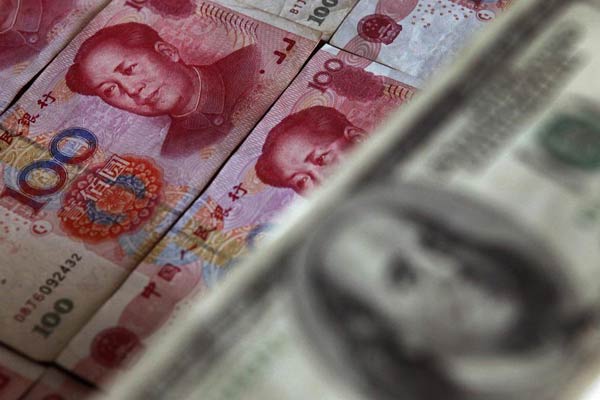Capital account shifts into the red
By Li Xiang (China Daily) Updated: 2015-02-04 07:15
 |
|
A photo illustration shows a $100 banknote placed above Chinese 100 yuan banknotes in Beijing in this May 10, 2013 file photo. [Photo/Agencies] |
The nation posted a deficit of $96 billion under its capital and financial account last year, larger than the $31.8 billion recorded in 2012, underscoring a shift to increasing outbound investment, data from the State Administration of Foreign Exchange showed on Tuesday.
The figure was a sharp contrast to a surplus of $362.2 billion in 2013, sparking concerns of possible capital flight as companies and individuals anticipate a slowing economy and stronger dollar.
But economists shrugged off those concerns, saying that the capital account deficit reflected that the country has entered a period of capital exports, driven by increasing outbound investment and acquisitions by State-owned and private enterprises.
"The era of the 'double surplus' under both the current and capital accounts, which were based on an obsolete growth mode driven by exports and foreign investment, has ended," said Zhao Xijun, deputy dean of the School of Finance at Renmin University of China in Beijing.
Domestic overcapacity, a side effect of the 4 trillion yuan ($640 billion) stimulus package to cope with the global financial crisis in 2008 and 2009, prompted the government to encourage companies to engage in outbound investment, which has resulted in capital outflows, Zhao said.
China became a net capital exporter for the first time last year with outbound investment surging to $102.89 billion, according to the Ministry of Commerce.
Xu Hongcai, an economist at the China Center for International Economic Cooperation, said that the widening capital account deficit does not necessarily indicate an uncontrollable risk of capital flight as the country still maintains a sizable current account surplus.
That surplus last year was $213.8 billion, which Xu said could help offset the pressure of capital outflows.
- Technology giants in flap over gift envelopes
- Drones taking to the air in test for delivery services
- Officials vow to plug tax loopholes
- China has great potential in engineering: former BP chief
- Hixih, Continental launch Yanzhou JV
- Chongqing unveils huge shale investment
- Chinese banks likely to have say in setting gold price
- Chinese company launches innovation contest to tech companies in Israel
















